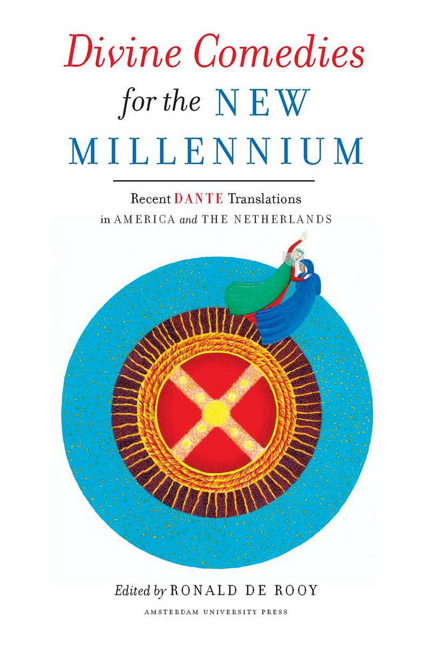Book contents
- Frontmatter
- Contents
- IntroductionDivine Comedies for the New Millennium. Humbleness and Hubris
- The Translations of Dante’s Comedy in America
- Translating Dante into English Again and Again
- ‘Getting Just a Small Part of it Right’
- The Poet Translated by American Poets. In Search of the Perfect ‘Trasmutazione Musaica’
- Ciò Che Potea La Lingua Nostra. One Hundred and More Years of Dante Translations into Dutch
- Translating Dante’s Translations
- Notes
- About the Contributors
- Selected Bibliography of American and Dutch Dante Translations
- Index of Names
- Miscellaneous Endmatter
IntroductionDivine Comedies for the New Millennium. Humbleness and Hubris
Published online by Cambridge University Press: 23 January 2021
- Frontmatter
- Contents
- IntroductionDivine Comedies for the New Millennium. Humbleness and Hubris
- The Translations of Dante’s Comedy in America
- Translating Dante into English Again and Again
- ‘Getting Just a Small Part of it Right’
- The Poet Translated by American Poets. In Search of the Perfect ‘Trasmutazione Musaica’
- Ciò Che Potea La Lingua Nostra. One Hundred and More Years of Dante Translations into Dutch
- Translating Dante’s Translations
- Notes
- About the Contributors
- Selected Bibliography of American and Dutch Dante Translations
- Index of Names
- Miscellaneous Endmatter
Summary
Dante in America…
It was not that surprising that in the United States of America Dante's Divine Comedy received a lot of extra attention from translators in the years before the jubilee 2000, a ‘magic’ year because of the 700th anniversary of Dante's voyage through the otherworld. America, of course, could already boast a strong tradition of Dante translations. At the beginning of the nineteenth century, the popular English Dante translation by Henry Francis Cary was an important instrument for introducing Dante in America. The American tradition really began with Thomas William Parsons and continued with the first American ‘dantisti’ in Boston at Harvard College, reaching a first peak with the still famous translation published by Henry Wadsworth Longfellow in 1867. Since then, Dante has been translated into English ‘again and again’ (to quote the title of Robert Hollander's contribution to this volume), resulting in a steady flux of English canticles that seems to follow, someone once calculated, an almost biological rhythm: approximately every nine months a new English canticle is born, so to speak.
What's more, this steady flow of ‘Englished’ Comedies has been accompanied from its very beginning by an extremely powerful and influential tradition of Dante studies. In the second half of the nineteenth century, Harvard College was a fertile breeding ground not only for Dante translations, but also for Dante studies: to remind us of the importance of this tradition, we need only mention famous scholars like Henry Wadsworth Longfellow, Charles Eliot Norton, James Russell Lowell, Charles Grandgent, and George Santayana. As is generally known, in the course of the twentieth century many other American scholars produced countless, truly indispensable contributions to the interpretation of Dante's works.
Apart from being repeatedly translated and eminently studied, Dante's Commedia has also been a steady and profound intertextual presence in Anglo- American prose and poetry. Renowned and diverse twentieth-century authors and poets like Joseph Conrad, James Joyce, T.S. Eliot, Ezra Pound, W.H. Auden, Malcolm Lowry, Robert Lowell, Seamus Heaney, W.S. Merwin, Derek Walcott – to mention only a few of the better known names – have all been writing (and sometimes even living) for shorter or longer periods under Dante's spell.
Dante's critical, creative, and translational fortuna in modern America has been, in one word, overwhelming.
- Type
- Chapter
- Information
- Divine Comedies for the New MillenniumRecent Dante Translations in America and the Netherlands, pp. 7 - 22Publisher: Amsterdam University PressPrint publication year: 2003

